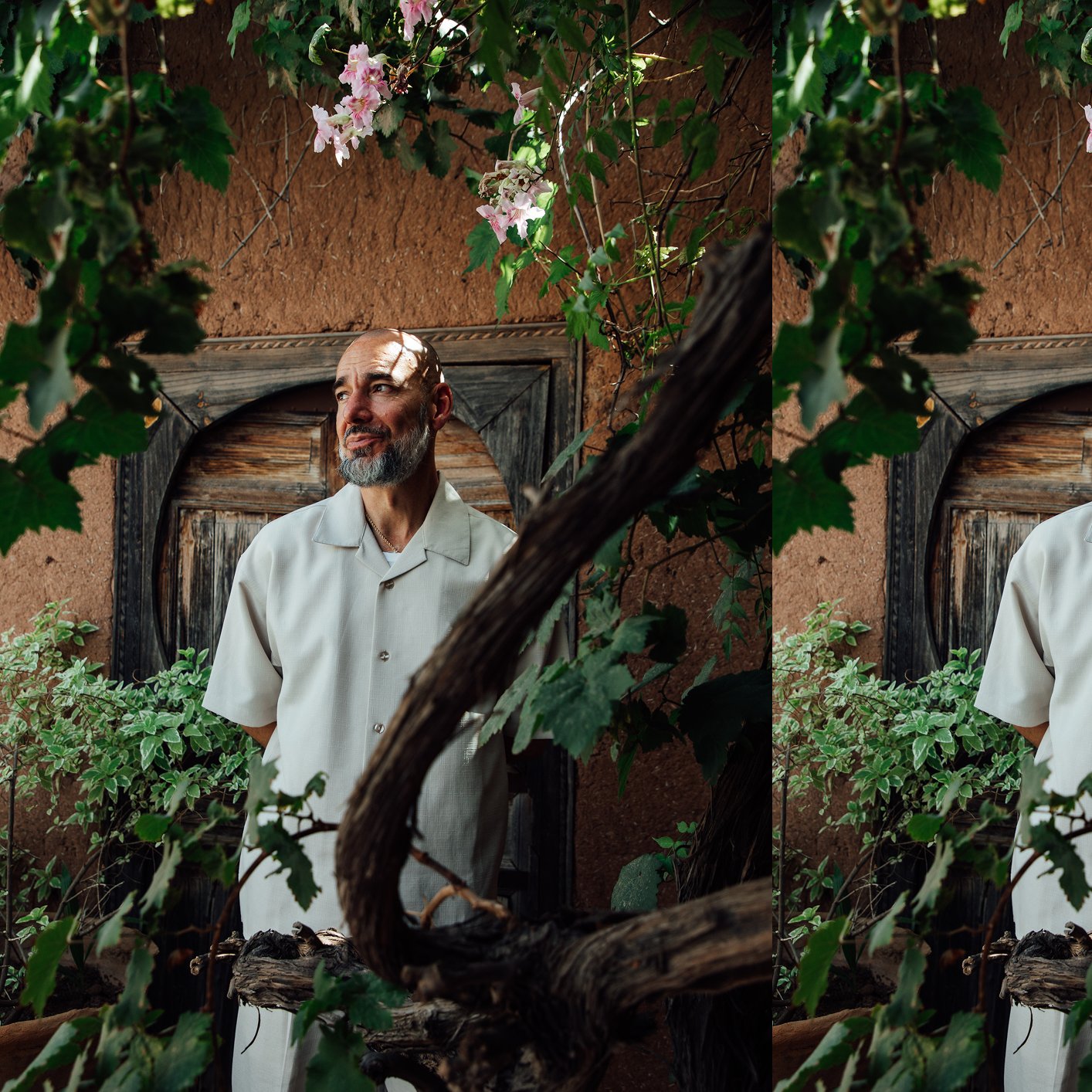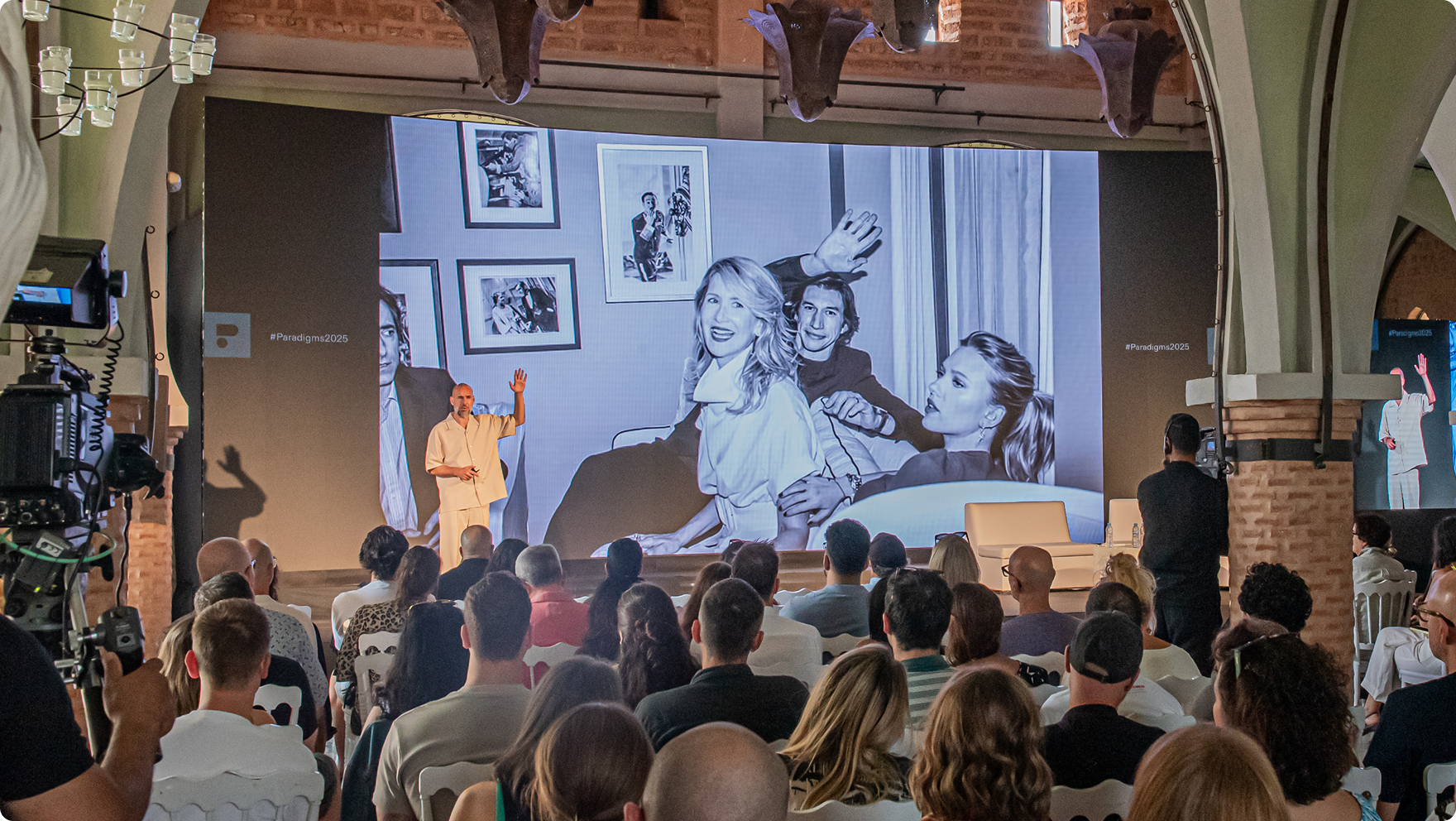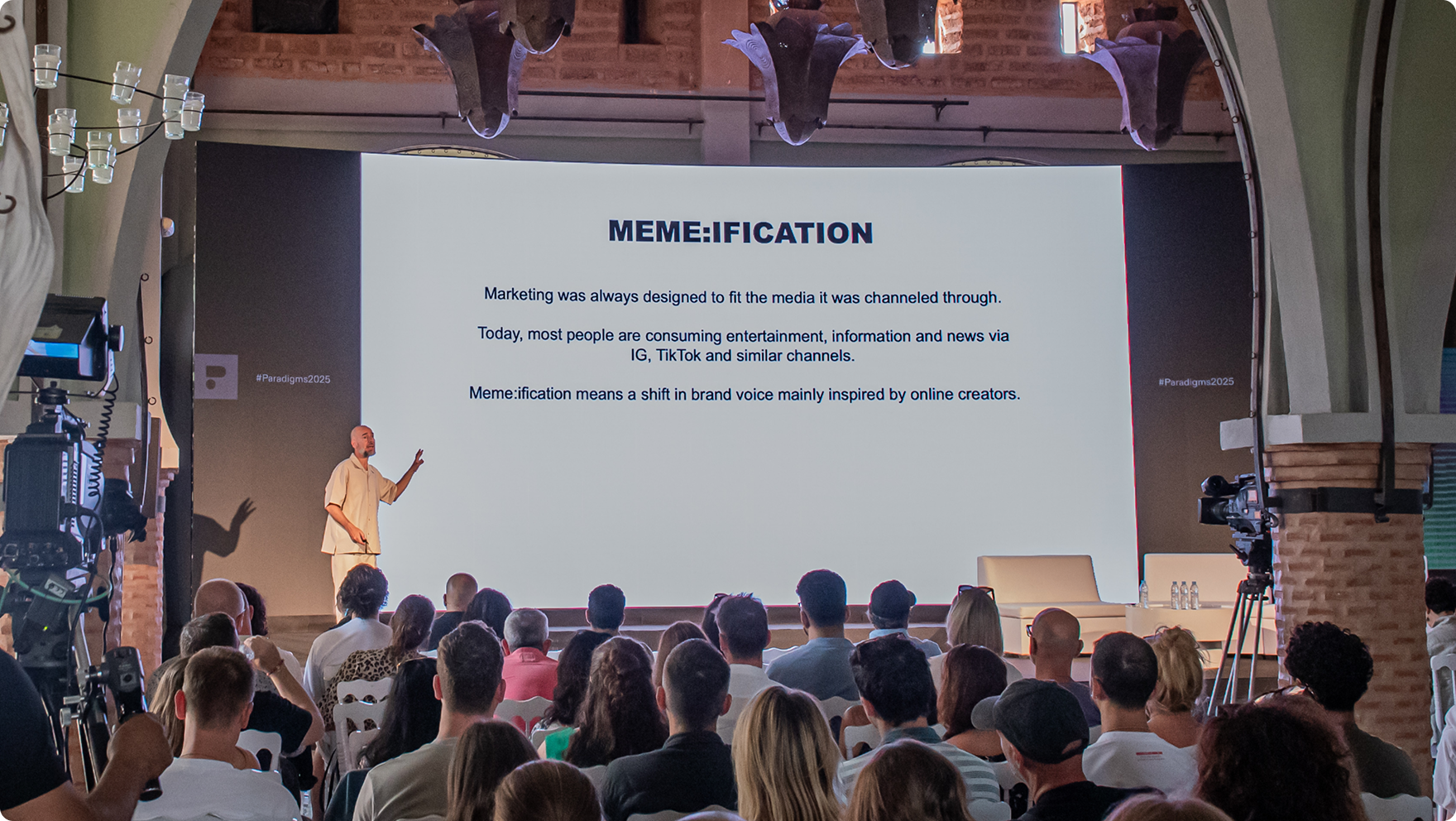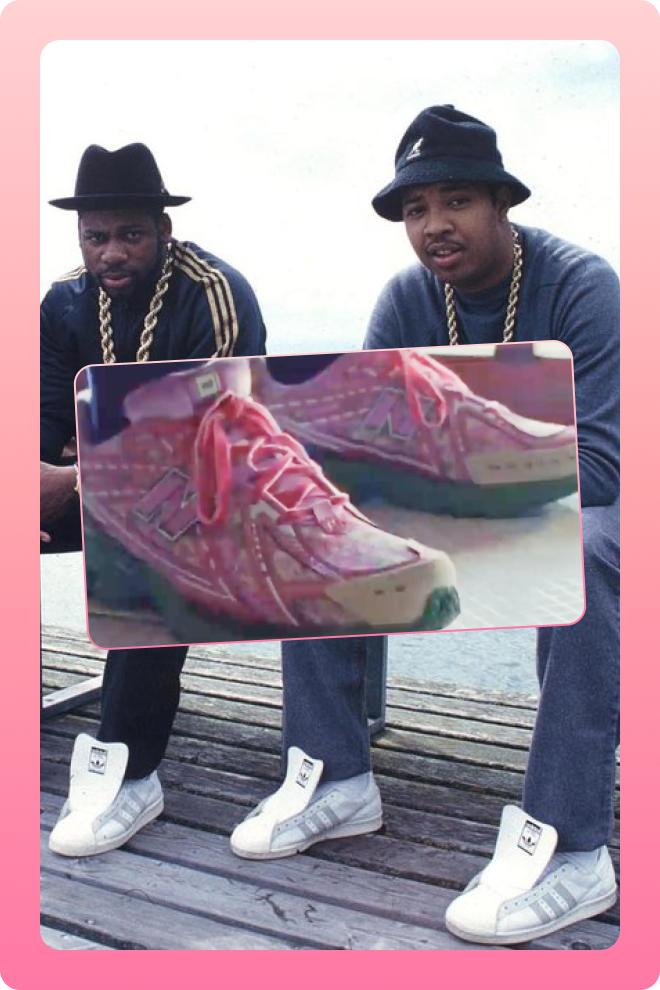The timeless power of mutual value


- Relevance depends on the zeitgeist – Great ideas connect a brand’s message with what’s happening in the real world; without that, they fail to resonate.
- Cultural context evolves – Meaning changes over time, so brands must constantly adapt their understanding.
- Authenticity matters – Chasing trends makes brands look like they’re trying too hard; they must add genuine, meaningful contributions.
- Branding is adaptive storytelling – Successful branding redefines a company’s purpose to fit the current cultural and media landscape.
- Mutual value is key – Marketing thrives when it creates value that benefits both the audience and the brand.
The following article is adapted from Tom’s presentation at Paradigms 2025.
When the film Marriage Story came out in 2019, divorce was at an all-time low level in the US.
This was before COVID. Obviously we all know what happened with COVID and divorce rates, but at the time, Marriage Story had nothing to do with real life.
Sure, the critics loved it, and Laura Dern won an Oscar for her role, but I found the story very hard to relate to. It was only about the director himself. It was him dealing with his own divorce. This was not a film about us.
Divorces in the US peaked in 1979. That was also the year when the original divorce film came out: Kramer vs Kramer.
It's a classic. It was Meryl Streep's first Oscar and it did amazingly well at the box office.
Because this film was about us.
This film was really tapping into the zeitgeist, the thing that was on people's minds.
Everyone was thinking about divorce in 1979, and Kramer vs. Kramer gave them something to catalyze that thought.
This is just an example of one of the components that’s essential when creating ideas.
If you want to be relevant, if you want to engage people, you have to relate to the world that they live in — the real world.
So typically the best ideas, the most engaging ideas, live in this twilight zone between your brand, your company, your product, and the zeitgiest.
And that last part is really important. Because if you're not in the loop, you will never be relevant.

Take health, for example.
A lot of brands, a lot of companies, have either a direct relation to health or an indirect relation to health.
And so if you want to be relevant, if you want to engage people with the idea of health, you have to understand what health is, and that changes over time.
So in the 1970s, there was Linus Pauling, the only guy to win an unshared Nobel prize twice.
He was the Vitamin C guy — his book How to Live Longer and Feel Better was all about the health benefits of Vitamin C.
So in the 1970s, health was pretty much what you ate. It was fruit, vegetables, etc.
Then in the 1980s you had Jane Fonda. Suddenly, health was more about exercising.
Then in the ‘90s, following the global economic crisis, there was the rise of alternative medicine. You know, goji berries, yoga, that sort of thing.
In 2000, yoga turned into happiness, and so on.
Then COVID hit, and people started to talk about mental health and the loneliness epidemic.
Our job is always to figure out what's the next thing around the corner, and how we can help our brands and our clients orient around it.
But that's just half of the equation.
The brilliant Matt Klein had an article a couple of years ago with this very refreshing stat that around two-thirds of people believe that brands try too hard.
So it's not enough to just understand the zeitgeist and tap into what's going on.
It also must come with a meaningful contribution – adding flavor rather than just being a parasite on things people are actually interested in.
Groucho Marx said: “I have my principles and if you don't like them, I have others.”
It sounds like a joke, but when you think about it, this is typically how the marketing industry operates. It’s how brands talk to consumers and how agencies talk to brands.
We're like: “Here's a buffet of ideas. What do you want?”
It's not a very successful strategy over time, especially in a time where people expect brands, companies, and leaders to have a point of view.
So that leads us to the other side of the equation which is how do you define the company that you work for or the brand that you represent.
And that's another really important lesson for anyone who works in our industry: branding is always retrofitting.
It's not about the true origin story, It's about redefining what you do in a way that makes sense in the time that you do it.
Marketing was always about designing the ideas or the execution to fit into the media it’s channeled through.
In the past, we made beautiful, high production TVCs to interrupt beautiful, high production TV shows, and we made beautiful print ads to fit into the New York Times.
But now, in a time where the majority of people consume news through TikTok and Instagram reels, marketing and branding is starting to mimic those platforms.
So we're trying to figure out, what is that internet-y voice that we need to adapt to?
When the internet first arrived, it gave people access to information. Then with the social media revolution, people got access to inspiration.
And now, with the AI revolution, people get access to production.
This is a quite significant shift. It's really transforming everything in our industry.
All the seminars I saw at Cannes were about what should agencies do? What can brands do to implement AI?
Frankly, I don’t care. I care far more about the shift that we already are experiencing.
We're already living in this memeified media landscape where the distance between the media and the many used to be a thousand miles and now it’s two miles.
In a political sense, we've given people the means of production. And it's really transforming everything.

There's always new things, and there's always gonna be people like me saying, 'oh, this is around the corner,' or 'did you see this.'
It can be very irritating. Because clearly, I don't have the answers. I have a perspective. I'm just trying to figure it out, like the rest of us.
Einstein said if you can't explain it to a 6-year-old, you don't understand it yourself.
My attempt to explain how marketing works to a 6-year-old, would be something like this:
Marketing works just like any ecosystem on Earth. All branding, design and marketing efforts are based on the same logic, the same principles.
If you take the apple tree — which is a small ecosystem — as an example. The only thing the apple tree wants is to create another apple tree.
And in order to succeed, the apple produces a fruit around its seeds, so that birds and people pick the fruit and spread the seeds.
It's good for the birds, but also good for the tree.
That's the basic principle of mutual value.
That's how all ecosystems on Earth work. And that's also how marketing works, how branding works.
If you want to be successful, you have to create mutual value. Something that's good for your audience, but also good for yourself.
Value, of course, is a very vague word.
But typically, in our industry, value could be information, it could be entertainment, it could be access, or tools or instruments.
You know it when you see it. And you also know when it's not there. And maybe the only thing that's on us, on our watch, is to make sure that our industry continues to deliver mutual value.
There will be a lot of conversations happening this week, I'm sure, on the topic of AI and what's the marketing value and what's the ROI and how does it convert?
But as long as we're providing mutual value, I think we'll be fine.








